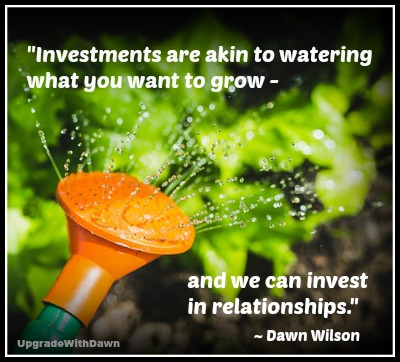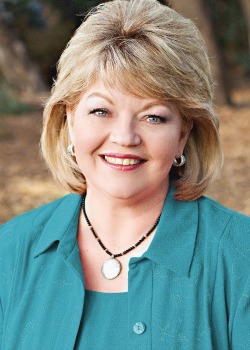Love Notes
In this Valentine's Day and Parenting UPGRADE, Morgan Farr—a mom with young children who  transitioned from feminism to biblical womanhood—encourages parents to share the true Source of love with their children through "love notes."
transitioned from feminism to biblical womanhood—encourages parents to share the true Source of love with their children through "love notes."
"Each day I strive to instill a good work ethic, teach self discipline, and most importantly, demonstrate godly character to my sons," Morgan says, "but it isn't always easy."
Like Morgan, I (Dawn) have two sons. I remember those challenging days when I wondered whether anything I taught and modeled was "getting through" to them. But I'm sure of one thing: they knew they were loved.
Morgan continues . . .
This Valentine's Day, I want my sons to learn more than just paper hearts and candy.
This year, I will write three love notes for my sons to read when they are older. These notes will help them to see what real love truly is as they deepen their understand the perfect love of God.
Today I want to share these notes with you.
First and most importantly, I want my boys to know that the Creator of the universe made them by hand.
"For you created my in most being; you knit me together in my mother's womb" (Psalm 139:13).
Long before I knew my boys where there, God knew. He formed each and every part of them, to His exact specifications.
Second, I want my boys to know that it is alright for them to stand strong.
"Be steadfast, immovable, always abounding in the works of the Lord, knowing that your toil is not in vain in the Lord" (1 Corinthians 15:58).
Many things in this world will try to pull them away from the work of God. Many things from this world will try to undercut and downplay their role as men of God.
I want them to know that they can stand firm in His unwavering love.
Third, I want my boys to know that once they accept Christ as their Lord and Savior, they are reborn with a commission—a great one, in fact.
"Go and make disciples of all nations, baptizing them in the name of the Fatger, the Son and the Holy Spirit, and teaching them to obey everything I have commanded you. And surely I am with you always, even to the very end of the age" (Matthew 28:19-20).
Christ has a calling for each of my son's lives. They may not have a garage gym ministry like my husband and I do. They may be mechanics, professors, senators or translators.
Whatever it is that they do on this earth, I want them to remember the real work to be done for the kingdom of God.
Charles Swindoll wrote:
"Each day of our lives, we make deposits in the memory banks of our children."
These love notes are the deposits I am focusing on this month.
What love notes will you focus on with your family?
Morgan Farr is an Army wife currently stationed at Fort Bragg in Fayetteville, North Carolina, with her wonderful husband Brian and their two sons. She is a homemaker who dedicates her free time to ministering to other Army wives through Bible studies, one-on-one interactions and physical training. Morgan writes about her transition out of feminism and into biblical womanhood on her blog. You can find her training programs on her blog, FarrFunctionalFitness.blogspot.com.
 Post a Comment → Posted on
Post a Comment → Posted on  Tuesday, February 7, 2017 at 7:16AM
Tuesday, February 7, 2017 at 7:16AM  God created us,
God created us,  God's love,
God's love,  Great Commission,
Great Commission,  Love Notes,
Love Notes,  Love of God,
Love of God,  Morgan Farr,
Morgan Farr,  Parenting,
Parenting,  Stand Strong,
Stand Strong,  Upgrade with Dawn,
Upgrade with Dawn,  Valentine's Day Upgrade Your Life
Valentine's Day Upgrade Your Life  Parenting,
Parenting,  Valentines Day
Valentines Day 











